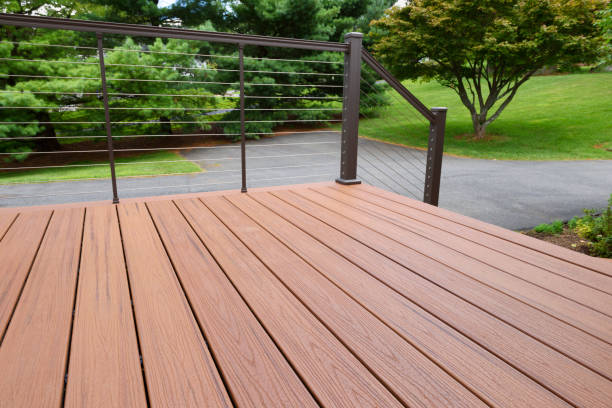Homeowners often face plumbing issues that range from minor annoyances to major emergencies. Knowing when to tackle a problem yourself and when to call a professional plumber is crucial—not only to save time and money but also to avoid causing further damage or risking your safety.
One common issue that frequently causes confusion is a leaking water heater. While some minor repairs can be done by handy homeowners, certain signs demand immediate expert attention. This article will guide you through deciding when to DIY and when to call a plumber, with a special focus on water heater leaks—because understanding is water heater leaking dangerous can help you protect your home and family.
Knowing When to DIY
Many plumbing tasks are manageable for homeowners who have basic tools and a bit of know-how. These include:
- Fixing dripping faucets
- Clearing minor drain clogs with a plunger or drain snake
- Replacing toilet flappers or handles
- Tightening loose fittings or valves
DIY repairs can save money and build confidence in home maintenance. However, it’s important to recognize your limits. Attempting complicated fixes without the right knowledge or equipment can worsen problems.
For example, if you notice a slow drip from a pipe joint, tightening it yourself may suffice. But if water is pooling or the leak is unexplained, professional assessment is safer.
Why Water Heater Leaks Require Caution
Water heaters are essential but complex appliances involving electricity or gas, pressurized hot water, and heavy tanks. Because of this, leaks pose unique risks. If you’re wondering is water heater leaking dangerous, the answer is yes—potentially.
Leaks can cause:
- Water damage: Even a small leak can saturate flooring, walls, or ceilings, leading to mold and structural damage.
- Electrical hazards: Electric water heaters near leaks risk short circuits or shocks.
- Gas leaks: For gas water heaters, leaks can compromise safety and increase fire or explosion risk.
- Inefficiency: Leaking water heaters lose heat and waste energy, driving up utility bills.
Because of these dangers, it’s critical to pay close attention to the signs water heater is leaking.
Signs You Should Call a Plumber
While some minor water heater maintenance like flushing sediment or replacing anode rods can be DIY projects, many signs indicate you should call a plumber immediately:
Visible Water Around the Tank
Pooling water or dampness beneath or around your water heater is a clear warning. This often signals tank failure or pipe connection issues needing professional repair.
Rust or Corrosion
Rust on the tank, fittings, or valves suggests deterioration that compromises the unit’s safety and performance. A plumber can assess whether repair or replacement is needed.
Unusual Noises
Banging, popping, or rumbling sounds can indicate sediment buildup inside the tank, requiring professional flushing or servicing.
Fluctuating Water Temperature
If hot water becomes inconsistent, it might mean the heating element or thermostat is failing, requiring expert diagnosis.
Smells or Signs of Gas
For gas water heaters, the smell of gas or pilot light issues should prompt immediate professional attention to prevent hazards.
When DIY Is Safe
If your water heater’s leak source is minor and easily accessible, and you have basic plumbing skills, you might safely:
- Tighten loose pipe fittings or valves with a wrench.
- Replace a leaking pressure relief valve (after shutting off power/gas and draining).
- Drain and flush sediment from the tank to improve performance.
Before starting any work, always turn off the water supply, and disconnect power or gas to avoid injury.
Dangers of Water Heater Leaking: Why Professional Help Matters
Even a seemingly small leak can escalate into a serious problem fast. The dangers of water heater leaking extend beyond water damage. If left unchecked, leaks can cause:
- Electrical shorts and fire risks.
- Mold growth that affects indoor air quality.
- Structural damage to floors and walls.
- Complete system failure requiring costly replacement.
Moreover, professionals have specialized tools like leak detection equipment and pressure testers, ensuring a thorough assessment and lasting repair.
How to Choose the Right Option
To decide between DIY and calling a plumber, consider these questions:
- Do I know the exact source of the leak? If not, don’t guess—call a pro.
- Is the leak close to electrical or gas components? If yes, professional help is a must.
- Do I have the right tools and safety gear? Plumbing jobs sometimes require special tools and knowledge.
- Is the leak causing water damage? If damage is visible or severe, it’s time for an expert.
- Am I comfortable and confident performing the repair? Don’t hesitate to call a plumber if unsure.
Conclusion
Balancing DIY repairs with professional plumbing help can save you money and stress—if you make the right call. When it comes to complex or hazardous issues like water heater leaks, understanding is water heater leaking dangerous and recognizing the signs water heater is leaking are vital.
If you face a leak that looks serious, smells of gas, or causes damage, do not delay. Contact a licensed plumber to ensure your home stays safe, dry, and comfortable.



